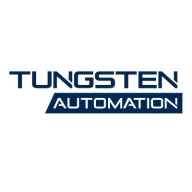

Teradata and Tungsten Insight compete in the data management and analytics space. Teradata has an advantage in pricing and support, while Tungsten Insight leads in features.
Features: Teradata has robust scalability, advanced analytics capabilities, and is ideal for large-scale data environments. Tungsten Insight offers advanced data visualization, machine learning integration, and quicker business intelligence.
Ease of Deployment and Customer Service: Teradata provides flexible deployment models like cloud, on-premises, and hybrid options with comprehensive customer support. Tungsten Insight simplifies setup through a streamlined cloud-based deployment and offers responsive service tailored to its platform.
Pricing and ROI: Teradata is competitive with subscription or usage-based models for budget-conscious buyers. Tungsten Insight, while costlier, offers significant ROI due to its sophisticated analytics capabilities that enhance decision-making.
| Product | Market Share (%) |
|---|---|
| Teradata | 0.9% |
| Tungsten Insight | 0.6% |
| Other | 98.5% |

| Company Size | Count |
|---|---|
| Small Business | 28 |
| Midsize Enterprise | 13 |
| Large Enterprise | 52 |
Teradata is a powerful tool for handling substantial data volumes with its parallel processing architecture, supporting both cloud and on-premise environments efficiently. It offers impressive capabilities for fast query processing, data integration, and real-time reporting, making it suitable for diverse industrial applications.
Known for its robust parallel processing capabilities, Teradata effectively manages large datasets and provides adaptable deployment across cloud and on-premise setups. It enhances performance and scalability with features like advanced query tuning, workload management, and strong security. Users appreciate its ease of use and automation features which support real-time data reporting. The optimizer and intelligent partitioning help improve query speed and efficiency, while multi-temperature data management optimizes data handling.
What are the key features of Teradata?
What benefits and ROI do users look for?
In the finance, retail, and government sectors, Teradata is employed for data warehousing, business intelligence, and analytical processing. It handles vast datasets for activities like customer behavior modeling and enterprise data integration. Supporting efficient reporting and analytics, Teradata enhances data storage and processing, whether deployed on-premise or on cloud platforms.
We monitor all BI (Business Intelligence) Tools reviews to prevent fraudulent reviews and keep review quality high. We do not post reviews by company employees or direct competitors. We validate each review for authenticity via cross-reference with LinkedIn, and personal follow-up with the reviewer when necessary.